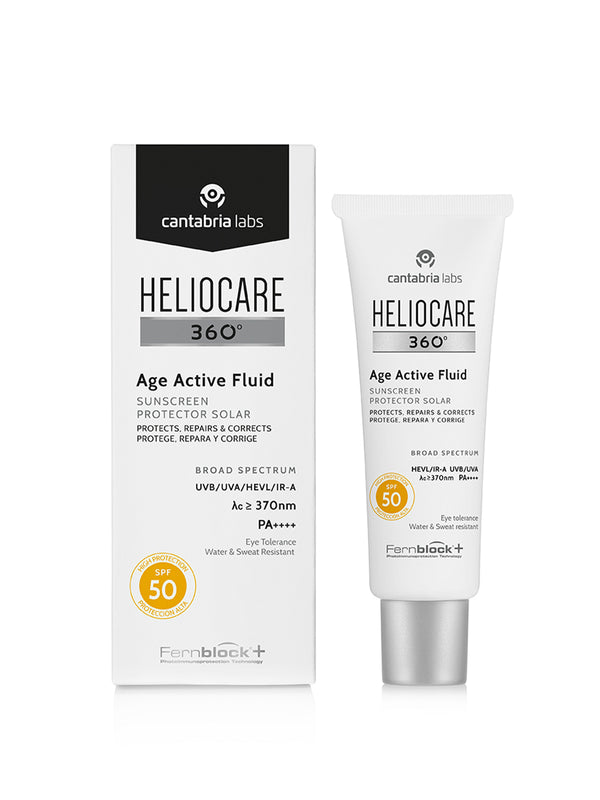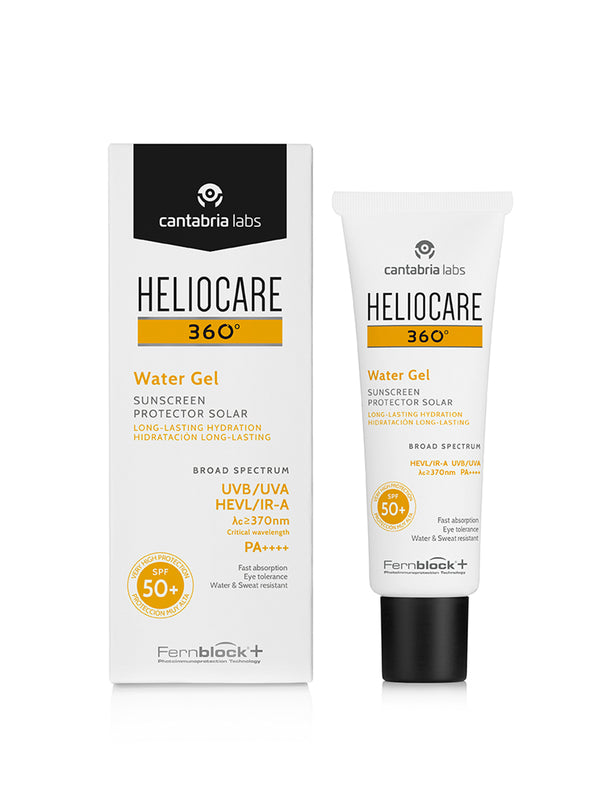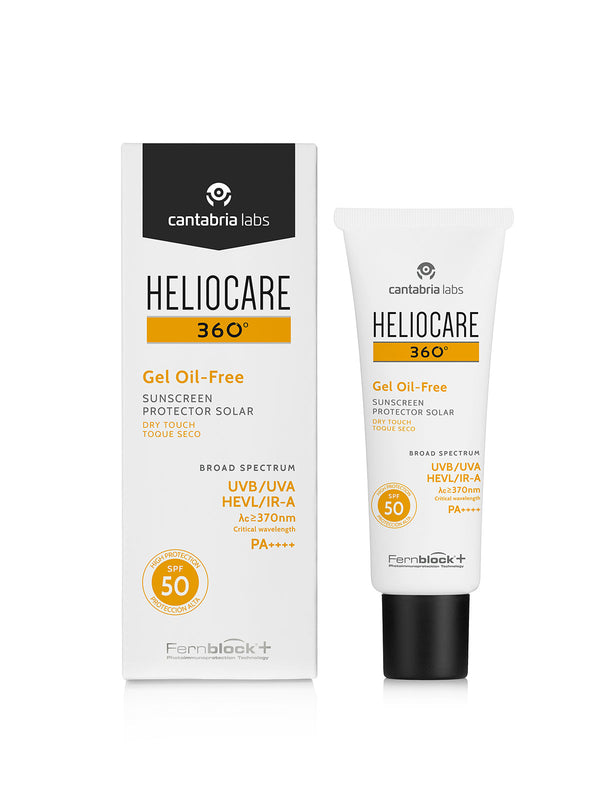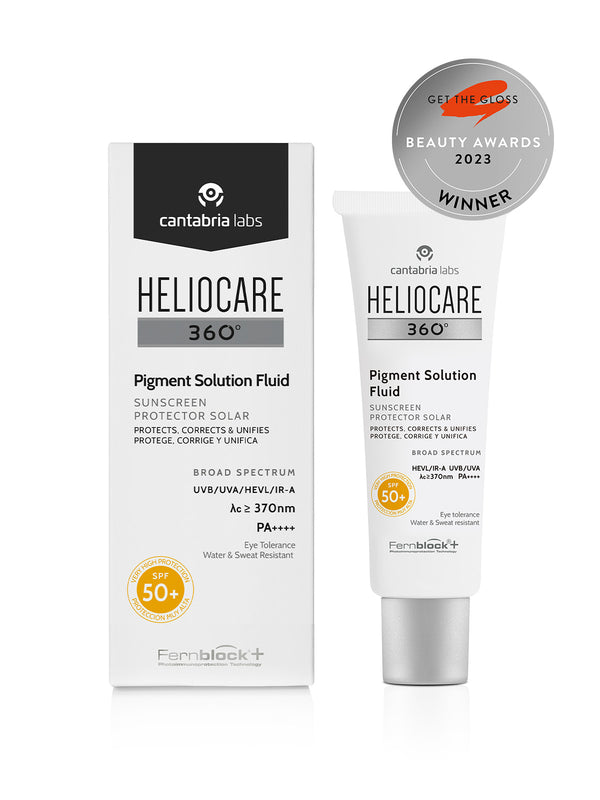Collagen: what is it, and how can we protect it?
Collagen is the body’s most plentiful protein and an integral part of the extracellular matrix, the network of molecules that holds our body’s tissues together. But despite this abundance, collagen is one of the most popular skin supplements, and collagen-boosting ingredients are serious must-haves in skincare products.
The reason collagen is so sought after is because it plays a big part in keeping our skin looking youthful and healthy. It also gradually depletes as we age. So how can we protect it?
What is collagen?
Collagen is a tough structural protein that’s found in the deepest layers of skin. It is a key component in bones, muscles, blood vessels and other bodily tissues1.
Collagen’s fibrous structure is very good at stretching, which makes our bodily tissues stronger and more resilient. This flexibility also makes our skin smooth and supple, whilst keeping signs of ageing at bay. What’s more, healthy collagen levels make for healthy joints, a healthy cardiovascular system, and protected organs2.
What happens to collagen as we age?
As we age, changes occur in our skin. Skin cell renewal slows down, making our complexions rougher and duller. We produce less elastin, so the skin becomes less plump, and fewer natural oils, which makes the skin more dry. Our bodies also produce less collagen as we age; it is thought that collagen levels deplete by approximately 1% every year3.
All of the above is part of the natural ageing process, which we might start to notice at around the age of 254. If we take care of our skin, the changes are more gradual, and we can keep our skin looking youthful for longer. On the flipside, the natural ageing process will be fast-tracked by unhealthy skin habits and external factors such as poor diet, pollution and UV exposure.
These activities are particularly damaging when it comes to collagen production. Poor diet, excess caffeine and alcohol, smoking and exposing our skin to the sun deplete collagen by reducing the thickness and strength of its fibres. This intensifies the natural ageing process, whereby collagen production gradually deteriorates, shifting from a strong, structured network to a fragmented jumble of fibres.
This is when our skin starts to sag and wrinkles appear.
How to protect collagen
We can help to protect our natural collagen production by avoiding these external aggressors and following healthy skin habits.
There are also some additional ways that we can protect and improve collagen production:
- Wear high level, broad spectrum sun protection every single day. This helps to prevent the sun’s rays from damaging the skin structure, including collagen fibers. SPF will also help to protect against free radicals, which increase the number of enzymes that break down collagen and impact its production.
- Introduce retinol and peptides into your skincare regime. These help to stimulate collagen production and make the skin look brighter and firmer. Retinol also boosts skin cell turnover for a more youthful complexion.
- Eat foods rich in collagen and vitamin C. Collagen can only be found naturally in the flesh of meat and fish5, however, a range of both animal and plant-based foods contain ingredients that help to promote collagen production. Egg whites, for example, have large amounts of proline6, which is an amino acid necessary for collagen production. Vitamin C also plays a big role in collagen synthesis, helping collagen fibers7 to form as well as helping connective tissues to heal. You can find vitamin C in a range of citrus fruits, berries and vegetables, so make sure you get your five a day.
- Drink more water. Hydration is crucial to the production of collagen, as well as playing a huge role in the absorption and delivery of vitamin C. Therefore, drinking plenty of water will help to improve collagen levels and keep the skin - and the rest of the body - hydrated and healthy.
- Try resurfacing treatments, peels and micro-needling at a professional skin clinic. These treatments help to boost collagen production by removing the outer layer of skin to stimulate collagen growth, or creating tiny, controlled wounds in the skin to trick the body into producing higher levels of collagen to assist healing8.
Protect collagen production with Heliocare
Shield your skin from the sun and protect your collagen levels with Heliocare 360°, a powerful, professional range of sun protection. Each product in the Heliocare 360° range features the patented plant extract, Fernblock, which has been clinically proven to protect collagen. Fernblock is also highly effective in protecting skin cell DNA, boosting the skin’s immune system, and neutralising free radical damage. The light and luxurious Heliocare 360° formulations also contain vitamin C, along with green tea extract, which contains polyphenols that slow collagen breakdown.
In the article

- For photoaged skin with fine lines and wrinkles
- Suitable for Fitzpatrick skin types I-IV
- SPF50 & PA++++
- Helps to prevent the signs of ageing

- For dry, dehydrated, or normal skin
- Suitable for Fitzpatrick skin types I-VI
- SPF50 & PA++++
- Invisible, satin finish

- For oily, spot-prone, or combination skin
- Suitable for Fitzpatrick skin types I-V
- SPF50 & PA++++
- Dry-touch, matte finish

- For skin with light-induced pigmentation
- Suitable for Fitzpatrick skin types I-IV
- SPF50 & PA++++
- Lifts and helps to prevent pigmentation
References:
1 Healthline. (2022). Collagen: Benefits, Side Effects, and More. [online] Available at: https://www.healthline.com/nutrition/collagen#what-it-is-and-uses.
2 www.medicalnewstoday.com. (n.d.). Collagen: What is it and what are its uses? [online] Available at: https://www.medicalnewstoday.com/articles/262881.
3 Nazish, N. (n.d.). The Best Ways To Protect And Boost Collagen In Skin, According To Dermatologists. [online] Forbes. Available at: https://www.forbes.com/sites/nomanazish/2020/02/18/the-best-ways-to-protect-and-boost-collagen-in-skin-according-to-dermatologists/ [Accessed 24 Jul. 2022].
4 MedicineNet. (n.d.). When Does Skin Begin to Age? Skin Aging Timeline. [online] Available at: https://www.medicinenet.com/when_does_skin_begin_to_age/article.htm.
5 The Nutrition Source. (2021). Collagen. [online] Available at: https://www.hsph.harvard.edu/nutritionsource/collagen/.
6 Healthline. (n.d.). 13 Foods That Boost Your Body’s Natural Collagen Production. [online] Available at: https://www.healthline.com/health/beauty-skin-care/collagen-food-boost.
7 DePhillipo, N.N., Aman, Z.S., Kennedy, M.I., Begley, J.P., Moatshe, G. and LaPrade, R.F. (2018). Efficacy of Vitamin C Supplementation on Collagen Synthesis and Oxidative Stress After Musculoskeletal Injuries: A Systematic Review. Orthopaedic Journal of Sports Medicine, [online] 6(10), p.232596711880454. doi:10.1177/2325967118804544.
8 The Spa at Spring Ridge. (2019). The Best Treatments & Procedures to Produce Collagen. [online] Available at: https://www.spaatspringridge.com/blog/what-are-the-best-procedures-to-produce-collagen/ [Accessed 24 Jul. 2022].






